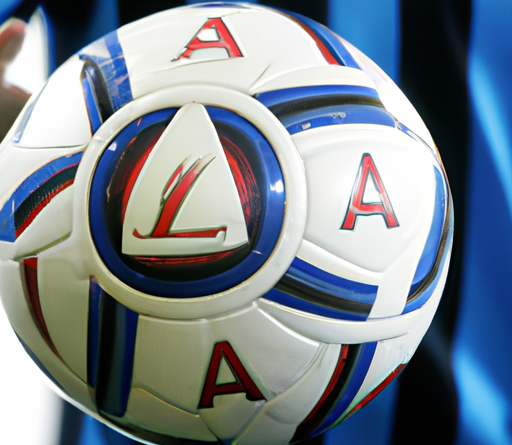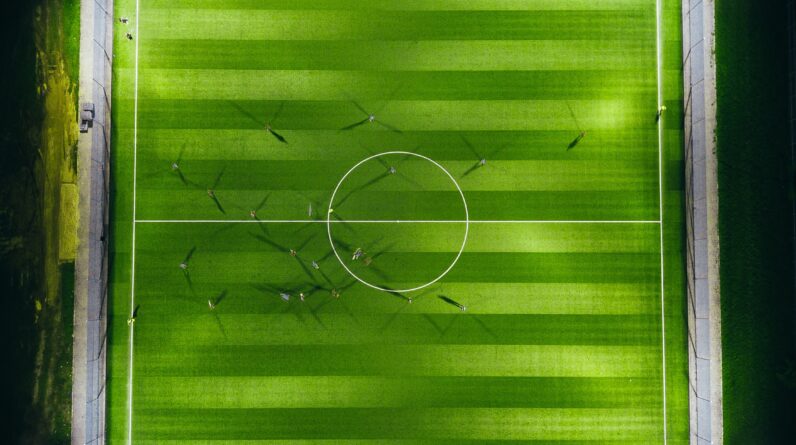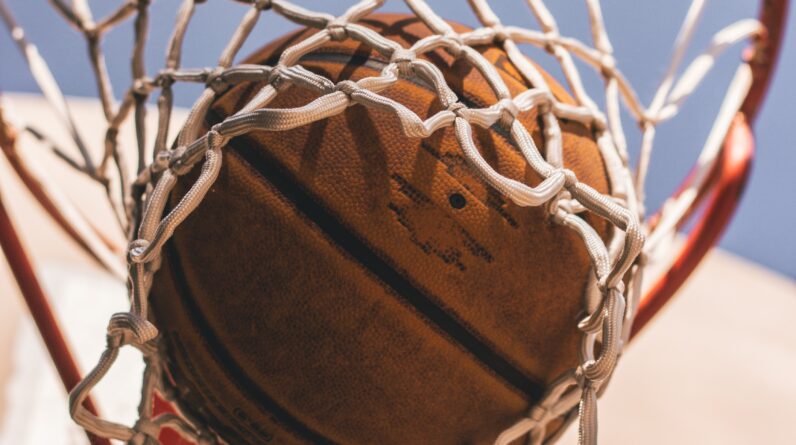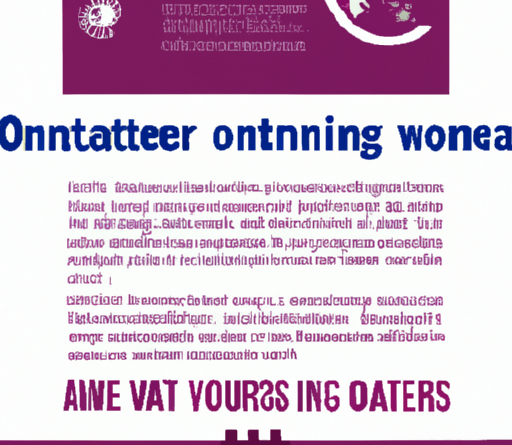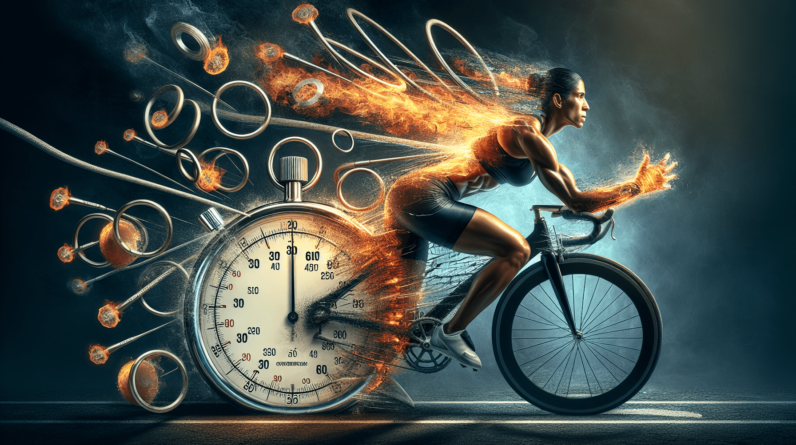
Are you looking to achieve peak performance in sports? Look no further! In this article, we will explore the concept of Enhancing Sports Performance through Provocative Change Works, a highly effective technique developed by Nick Kemp. By delving into the realm of sports psychology and utilizing the power of the mind, Provocative Change Works offers a unique approach to improving sports mindset. Through this captivating method, athletes can unlock their full potential and achieve unparalleled success in their respective fields. Get ready to revolutionize your game and take your performance to new heights!
Table of Contents
Understanding Provocative Change Works
What is Provocative Change Works?
Provocative Change Works (PCW) is an innovative and powerful approach used to enhance sports performance. Developed by Nick Kemp, PCW combines elements of coaching, psychology, and neuro-linguistic programming (NLP) to create profound shifts in athletes’ mindset and behavior. It challenges traditional methods by utilizing humor, playfulness, and unexpected interventions to provoke transformative change.
Key Principles of Provocative Change Works
-
Unconventional Approaches: PCW recognizes that traditional techniques aren’t always effective and seeks to encourage out-of-the-box thinking to achieve better results.
-
Dismantling Limiting Beliefs: PCW challenges athletes’ limiting beliefs and self-imposed boundaries, allowing them to tap into their full potential.
-
Emotional Engagement: PCW emphasizes the importance of connecting with emotions and harnessing them to fuel motivation, resilience, and performance.
-
Humor and Playfulness: PCW incorporates humor and playfulness to create a relaxed and enjoyable environment where athletes feel safe to explore their challenges.
Benefits of Provocative Change Works in Sports
Provocative Change Works offers a plethora of benefits for athletes striving to enhance their sports performance. Here are some of the key advantages:
-
Breakthrough Results: PCW is highly effective in breaking through performance plateaus and achieving significant improvements in sports performance.
-
Enhanced Mental Strength: PCW equips athletes with the mental tools to overcome barriers, develop resilience, and self-belief, resulting in improved confidence and focus.
-
Motivation and Goal Clarity: PCW techniques help athletes tap into their intrinsic motivators and set realistic yet challenging goals, providing a clear sense of purpose and direction.
-
Performance Under Pressure: PCW equips athletes with techniques to manage stress and anxiety, develop pre-performance routines, and overcome fear and doubt, enhancing their ability to excel in high-pressure situations.
-
Stronger Relationships and Team Dynamics: PCW enhances communication, trust, and collaboration within teams, fostering a supportive and cohesive environment for optimal performance.
-
Emotional Control and Regulation: PCW provides athletes with strategies to reduce stress, increase emotional awareness and regulation, and develop emotional intelligence for improved performance.
-
Adaptability and Resilience: PCW emphasizes the ability to embrace change, develop flexibility, and overcome setbacks and failure, allowing athletes to thrive in challenging situations.
-
Injury Recovery and Rehabilitation: PCW helps athletes maintain a positive mindset during the recovery process, build mental resilience, and accelerate their return to sports.
By delving into the techniques and principles of PCW, athletes can harness its benefits to unlock their true potential and excel in their chosen sports.
Techniques of Provocative Change Works
Provocative Coaching
Provocative Coaching is the cornerstone of PCW. It entails provoking, challenging, and questioning athletes in unexpected and thought-provoking ways to disrupt their existing patterns of thinking and behavior. Through skillful questioning and humorous interventions, coaches encourage athletes to look beyond their limitations, consider alternate perspectives, and explore new possibilities they may not have previously considered. This approach creates a fertile ground for transformative change and breakthroughs in performance.
Pattern Interrupts
Pattern interrupts are spontaneous and unexpected interventions used to disrupt athletes’ repetitive mental and behavioral patterns. By interrupting these patterns, PCW breaks automatic responses and opens up space for new insights and possibilities. For example, a coach might utilize a sudden change in tone, delivery, or physical movement to jolt the athlete out of their usual way of thinking and encourage them to approach their challenges from a fresh perspective. This technique has proven to be highly effective in stimulating creativity, shifting mindset, and promoting breakthroughs in performance.
Role Reversal
Role reversal is a powerful technique that allows athletes to step into the shoes of their biggest critics or opponents. By embodying the perspective of an adversary, athletes gain valuable insights into their own strengths and weaknesses, enabling them to devise effective strategies and enhance their performance. Role reversal helps athletes challenge their assumptions, identify blind spots, and develop a heightened sense of self-awareness.
Provocative Questions
Provocative questions serve as catalysts for deep reflection and exploration. These questions are designed to challenge athletes’ limiting beliefs, break through mental barriers, and elicit insights that lead to transformative change. Instead of relying on standard questioning techniques, PCW coaches ask thought-provoking and often humorous questions that shift athletes’ perspective, enabling them to see their challenges from fresh angles and create new possibilities for success.
Humor and Playfulness
Humor and playfulness are integral components of PCW. Laughter and a light-hearted approach help reduce stress, foster trust, and create an enjoyable, safe space for athletes to explore their limitations and redefine their potential. By infusing humor and playfulness into the coaching process, PCW enables athletes to embrace challenges with a positive mindset, tap into their creativity, and approach their sports performance with newfound joy and enthusiasm.
By utilizing these techniques, coaches can facilitate transformative change, helping athletes overcome their mental barriers, enhance their focus, and achieve breakthrough results in sports.
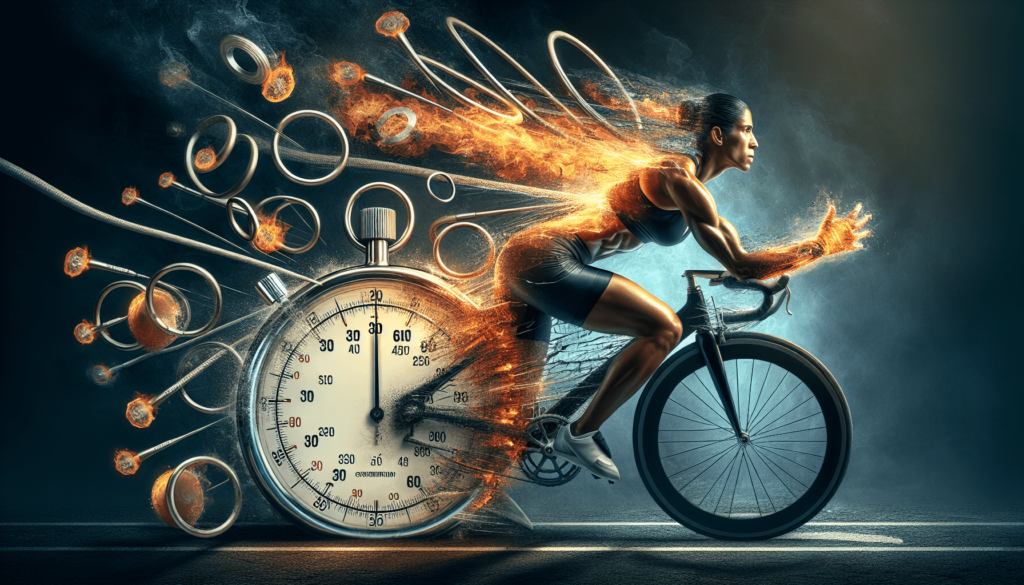
Enhancing Focus and Mental Strength
Overcoming Mental Barriers
Mental barriers such as self-doubt, fear of failure, and negative self-talk can significantly hinder sports performance. PCW provides athletes with tools and techniques to identify and overcome these mental barriers. By employing the principles of PCW, coaches can help athletes reframe their negative thoughts, challenge their limiting beliefs, and develop a resilient mindset that allows them to perform at their best.
Developing Resilience
Resilience is the ability to bounce back from setbacks and challenges. PCW equips athletes with strategies to build emotional resilience, embrace change, and view failures as opportunities for growth. Coaches encourage athletes to reframe setbacks as valuable learning experiences, helping them develop the mental toughness needed to thrive in the face of adversity.
Increasing Confidence and Self-Belief
Confidence and self-belief are crucial for optimal sports performance. PCW utilizes techniques that help athletes enhance their confidence and belief in their abilities. By challenging self-imposed limitations and embracing a growth mindset, athletes can cultivate unwavering self-belief that empowers them to push their boundaries and achieve extraordinary results.
Enhancing Concentration and Attention
PCW offers techniques to train athletes’ focus, concentration, and attention skills, ensuring they can maintain their mental clarity even in high-pressure situations. Coaches incorporate visualization exercises, mindfulness techniques, and goal-setting practices to help athletes stay fully present and engaged during their performance, maximizing their potential.
By incorporating PCW principles and techniques, athletes can develop the mental strength required to overcome challenges, stay focused, and perform at their best.
Creating Motivation and Goal Setting
Motivational Techniques in Provocative Change Works
PCW employs various motivational techniques to ignite athletes’ inner drive and passion. Coaches utilize humor, metaphor, and storytelling to tap into athletes’ intrinsic motivations and help them connect with their deeper purpose. By shifting the focus from external validation to an internal sense of fulfillment and passion, PCW fosters long-lasting motivation that fuels athletes’ commitment to their goals.
Setting Realistic and Challenging Goals
Setting appropriate goals is essential for athletes to maintain focus and strive for continuous improvement. PCW coaches guide athletes in setting realistic yet challenging goals that stretch their capabilities. By breaking down larger goals into smaller, achievable milestones, athletes can experience a sense of progress, staying motivated throughout their sports journey.
Building a Strong Sense of Purpose
A strong sense of purpose is a driving force behind exceptional sports performance. PCW helps athletes uncover their core values, passions, and what truly matters to them. Coaches collaborate with athletes to align their goals with their values, creating a powerful sense of purpose that fuels their motivation, resilience, and commitment to excellence.
Through PCW’s motivational techniques and goal-setting strategies, athletes can cultivate unwavering motivation, set meaningful goals, and unleash their full potential in sports.

Improving Performance Under Pressure
Managing Stress and Anxiety
High-pressure situations can trigger stress and anxiety, negatively impacting sports performance. PCW equips athletes with effective stress management techniques to regulate their emotions, maintain composure, and perform at their best even in the face of pressure. Coaches employ relaxation exercises, breathing techniques, and mindfulness practices to help athletes manage stress and anxiety, enabling them to access their optimal performance state.
Pre-Performance Routines
Pre-performance routines play a vital role in preparing athletes mentally and physically for competition. PCW coaches assist athletes in developing personalized routines that promote focus, relaxation, and confidence. By incorporating specific rituals and mental preparations, athletes can enter their performance with a heightened sense of readiness, setting the stage for success.
Visualization and Mental Rehearsal
The power of visualization and mental rehearsal cannot be underestimated in sports performance. PCW utilizes these techniques to help athletes build a vivid mental image of their desired outcome, rehearsing their winning performance in their mind’s eye. This practice enhances muscle memory, primes the mind for success, and boosts confidence, ultimately leading to improved performance on the field or court.
Dealing with Fear and Doubt
Fear and doubt can cripple sports performance. PCW provides athletes with tools to address and overcome these common mental obstacles. Coaches help athletes reframe their fears, build self-trust, and develop positive self-talk that counters self-doubt. By adopting empowering beliefs and reframing challenges as opportunities, athletes can perform with fearless confidence.
By utilizing PCW techniques to manage pressure, athletes can perform at their best even in demanding situations, achieving peak performance when it matters most.
Building Strong Relationships and Team Dynamics
Enhancing Communication
Effective communication is vital for successful team dynamics. PCW emphasizes open, honest, and constructive communication between coaches, athletes, and team members. Coaches employ various techniques, including active listening, mirroring, and reframing, to promote effective communication, fostering trust and understanding within the team.
Developing Trust and Collaboration within Teams
Trust is the foundation of successful team dynamics. PCW facilitates the development of trust among team members through activities that encourage vulnerability, authenticity, and mutual support. Creating a safe and non-judgmental space allows athletes to take risks, collaborate, and build synergy that propels the team towards success.
Building Strong Coach-Athlete Relationships
The coach-athlete relationship plays a pivotal role in an athlete’s growth and performance. PCW recognizes the importance of this relationship and provides coaches with techniques to build strong connections with their athletes. Coaches employ active listening, empathy, and humor to create a supportive bond that fosters trust, communication, and mutual respect, ultimately enhancing athlete development.
By promoting effective communication, trust, and collaboration, PCW strengthens relationships within teams, thereby creating an environment where athletes can thrive and achieve their full potential.
Embracing Change and Adapting to Challenges
Embracing Change in Sports
Change is inevitable in sports, and PCW helps athletes embrace it as an opportunity for growth. Coaches encourage athletes to view change as a natural and necessary part of their sports journey, enabling them to adapt and innovate in response to new challenges. By cultivating a mindset that welcomes change, athletes become more flexible, resilient, and open to new possibilities.
Developing Flexibility and Adaptability
Flexibility and adaptability are essential qualities in sports. PCW equips athletes with strategies to develop these traits, helping them navigate unpredictable situations and adjust their approach accordingly. Coaches expose athletes to new perspectives, encourage experimentation, and provide support during transitions, enabling athletes to thrive even in the face of adversity.
Overcoming Setbacks and Failure
Setbacks and failures are integral to the learning process in sports. PCW helps athletes reframe setbacks as valuable opportunities for growth and resilience. Coaches provide athletes with techniques to bounce back from failures, learn from them, and maintain a positive mindset, fostering a mentality of progress rather than perfection.
By embracing change, developing flexibility, and overcoming setbacks, athletes can navigate challenges with ease, adapt to new circumstances, and excel in their sports journey.
Improving Emotional Control and Regulation
Stress Reduction Techniques
Managing stress is crucial for optimal sports performance, and PCW offers athletes a range of stress reduction techniques. Coaches introduce athletes to relaxation exercises, guided imagery, and mindfulness practices that help regulate emotions, reduce stress, and promote mental clarity. By developing a repertoire of stress reduction techniques, athletes can stay calm and focused during high-pressure situations.
Emotional Awareness and Regulation
PCW fosters emotional awareness and regulation, empowering athletes to recognize and channel their emotions effectively. Coaches help athletes identify the emotions they experience during training and competition, understand their triggers, and develop strategies to stay emotionally balanced. By harnessing their emotions instead of being overwhelmed by them, athletes can improve their decision-making, performance, and overall well-being.
Developing Emotional Intelligence
Emotional intelligence is a key component of effective sports performance. PCW emphasizes the development of emotional intelligence by helping athletes understand and manage their own emotions while also being attuned to the emotions of others. Coaches provide tools and exercises to enhance empathy, perspective-taking, and emotional expression, enabling athletes to build stronger relationships, communicate effectively, and adapt to different team dynamics.
By improving emotional control, regulation, and intelligence, athletes can harness the power of their emotions to enhance their sports performance and overall well-being.
Utilizing Provocative Change Works for Injury Recovery
Mental Strategies for Rehabilitation
Injury recovery can be mentally challenging, and PCW offers athletes powerful mental strategies to support their rehabilitation process. Coaches help athletes reframe their injuries as opportunities for growth, develop positive affirmations, and visualize their successful return to sports. By maintaining a positive mindset and utilizing mental tools, athletes can accelerate their recovery and optimize their return to their sports.
Promoting Positive Mindset during Recovery
PCW recognizes the importance of maintaining a positive mindset during the recovery process. Coaches engage athletes in exercises that focus on gratitude, visualization, and positive self-talk, creating an environment that fosters optimism and resilience. By cultivating a positive mindset, athletes approach their recovery with determination and motivation, leading to quicker and more successful rehabilitation outcomes.
Building Resilience for Return to Sports
Returning to sports after an injury requires resilience both mentally and physically. PCW coaches work with athletes to develop mental resilience techniques that enable them to bounce back from setbacks, overcome self-doubt, and regain confidence in their abilities. By building mental resilience alongside physical rehabilitation, athletes can make a successful transition back to their sport and perform at their previous level, or even higher.
Through the application of PCW principles and techniques, athletes can navigate the challenges of injury recovery with strength, positivity, and confidence, enabling them to resume their sports activities with optimal performance.
Case Studies: Athletes’ Success Stories
Athlete 1: Overcoming Performance Anxiety
Athlete 1 had been struggling with performance anxiety, which severely impacted their ability to perform at their best during competitions. Through PCW, their coach employed provocative questioning, role-playing exercises, and humor to challenge their limiting beliefs and shift their perspective on anxiety. The coach helped the athlete reframe anxiety as excitement and created a pre-performance routine that incorporated relaxation techniques and positive self-talk. As a result, Athlete 1 was able to confidently step onto the field, compete without fear, and achieve outstanding performance, overcoming their performance anxiety for good.
Athlete 2: Building Confidence after Injury
Athlete 2 had suffered a significant injury that had not only affected their physical abilities but had also eroded their confidence on the court. With the help of PCW, the coach utilized visualization and mental rehearsal exercises to rebuild the athlete’s confidence and belief in their abilities. The coach also created a supportive environment where the athlete could openly discuss their fears and doubts, offering reassurance and guidance. Through PCW, Athlete 2 regained their confidence, returned stronger than ever, and achieved remarkable success, proving that with the right mindset, setbacks can be transformed into comebacks.
Athlete 3: Improving Team Dynamics
Athlete 3 was part of a team struggling with poor communication and lack of collaboration. The coach employed PCW techniques, including role reversals and pattern interrupts, to disrupt the negative dynamics within the team. Through humorous interventions and provocative questions, the coach facilitated open dialogues and fostered understanding among team members. Gradually, trust and collaboration were established, transforming the team’s culture and enhancing their overall performance. Athlete 3 and their team emerged as a unified force, achieving remarkable success and realizing the power of strong relationships in sports.
These case studies illustrate the transformative impact of PCW on athletes’ sports performance. By employing PCW techniques, coaches can unlock the untapped potential of their athletes, enabling them to overcome challenges, enhance their performance, and achieve extraordinary success.
Embracing the principles and techniques of Provocative Change Works can truly revolutionize an athlete’s sports journey. By incorporating elements of humor, playfulness, and insightful interventions, athletes can develop the mental resilience, focus, motivation, and collaboration required for outstanding sports performance. Whether it’s overcoming mental barriers, setting meaningful goals, managing pressure, cultivating emotional intelligence, or recovering from injuries, PCW provides a comprehensive toolbox for athletes to unlock their true potential and excel in their chosen sports. So why wait? Embrace Provocative Change Works and embark on a transformative journey towards peak performance!




